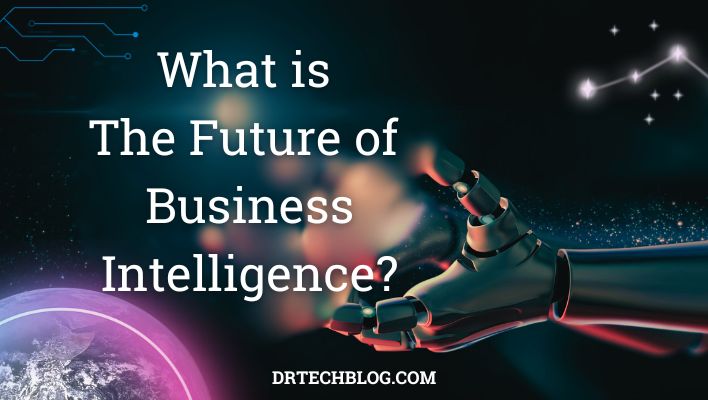Introduction to Business Intelligence
Step into the realm of business intelligence, where data reigns supreme and insights hold the key to success. In an era driven by digital transformation and information overload, organizations are constantly seeking ways to harness the power of data to make informed decisions and drive growth. This is where business intelligence comes into play – a dynamic field that empowers businesses with actionable insights derived from raw data.
But what does the future hold for this ever-evolving discipline? As technology continues to advance at breakneck speed, new trends emerge and traditional practices evolve. In this blog post, we will delve into the exciting world of business intelligence, explore current trends shaping its landscape, discuss emerging technologies that are revolutionizing the field, and gaze into our crystal ball to predict what lies ahead in 2025.
So fasten your seatbelts as we embark on a journey through time and innovation – exploring the past, present, and future of business intelligence!
Top Business Intelligence Trends
In the world of business intelligence, staying ahead of trends is essential to success. As technology continues to advance at a rapid pace, new opportunities and challenges arise for businesses seeking to harness the power of data. Here are some top trends that are shaping the future of business intelligence.
1. AI-Powered Analytics: Artificial Intelligence (AI) is revolutionizing the way businesses analyze and interpret data. With AI-powered analytics, companies can gain deeper insights and make more accurate predictions based on large volumes of complex data.
2. Self-Service BI: Empowering employees with self-service BI tools allows them to access and analyze data independently, reducing reliance on IT teams and accelerating decision-making processes.
3. Data Governance: As data becomes increasingly valuable, ensuring its quality and security through effective governance practices is crucial. Businesses are investing in robust data governance strategies to maintain compliance, mitigate risks, and maximize the value derived from their data assets.
4. Embedded Analytics: Embedding analytics into existing applications or platforms enables organizations to deliver real-time insights directly within workflows or customer-facing interfaces for enhanced decision-making capabilities.
5. Cloud-Based BI Solutions: The shift towards cloud-based solutions continues as businesses recognize the scalability, flexibility, cost-efficiency, and accessibility benefits provided by cloud-based business intelligence platforms.
6. Predictive Analytics: By leveraging historical data patterns combined with statistical algorithms, predictive analytics helps businesses forecast future outcomes accurately. This trend empowers organizations to make proactive decisions rather than reactive ones.
7. Data Visualization Techniques: Visualizing complex datasets in an easily understandable format using interactive dashboards or infographics has become a significant focus in business intelligence efforts facilitating better communication across departments and leading toward a more informed decision-making process.
8. Adoption Of Natural Language Querying: With advancements in natural language processing technologies, businesses have embraced this trend enabling users without technical knowledge to query databases using simple conversational language enhancing user experience.
The Evolution of Business Intelligence and Current Trends in Business Intelligence
Business intelligence has come a long way since its inception. In the early days, it was primarily focused on data collection and reporting. However, as technology advanced and businesses started generating massive amounts of data, the need for more sophisticated tools and techniques became apparent.
Today, business intelligence is about much more than just collecting and reporting data. It encompasses a wide range of activities including data mining, predictive analytics, and real-time dashboards. These advancements have enabled businesses to gain deeper insights into their operations and make informed decisions.
One current trend in business intelligence is the increasing use of artificial intelligence (AI) and machine learning algorithms. These technologies can analyze large volumes of complex data at incredible speed, allowing organizations to uncover patterns and trends that would be nearly impossible to detect manually.
Another trend is the move towards self-service BI tools. This empowers non-technical users to access and analyze data without relying on IT or data analysts. Self-service BI not only saves time but also promotes collaboration across departments by enabling all employees to become active participants in decision-making processes.
Furthermore, cloud computing has revolutionized how businesses approach business intelligence. Storing vast amounts of structured and unstructured data off-site allows for scalability, flexibility, cost efficiency, and increased accessibility.
The future of business intelligence holds even greater promise with emerging technologies such as natural language processing (NLP), augmented analytics, and blockchain integration for secure transactions within a networked environment among others gaining traction.
So let’s just say that the evolution of business intelligence continues at an impressive pace driven by technological advancements in AI/ML algorithms, self-service BI tools adoption, natural language processing(NLP) capabilities, and cloud-based solutions.
The Impact of Emerging Technologies on BI
In today’s rapidly evolving digital landscape, emerging technologies are reshaping the way we do business. And when it comes to Business Intelligence (BI), these technological advancements have a profound impact on how organizations gather, analyze, and leverage data for decision-making.
One such technology that is revolutionizing the field of BI is Artificial Intelligence (AI). AI-powered algorithms can process vast amounts of data in real-time, uncovering patterns and trends that humans might overlook. This enables businesses to make more accurate predictions and identify growth opportunities.
Another game-changer in the world of BI is Machine Learning (ML). ML algorithms learn from historical data and continuously improve their performance over time. This allows businesses to automate repetitive tasks, streamline processes, and gain valuable insights into customer behavior.
Furthermore, the Internet of Things (IoT) has opened up new avenues for collecting data. With IoT devices seamlessly connected through an interconnected network, companies can now gather real-time information from various sources such as sensors or wearables. This abundance of data empowers organizations to make informed decisions based on real-world intelligence.
Additionally, Cloud Computing has transformed the way businesses store and access their data. By leveraging cloud-based BI platforms, organizations can securely store large volumes of information while benefiting from scalability and flexibility. Cloud-based solutions also enable easier collaboration across teams regardless of geographical location.
Blockchain technology is yet another emerging trend impacting BI by enhancing transparency and security in transactions involving sensitive business information. The decentralized nature of blockchain ensures trust between parties involved in sharing critical data while minimizing the risk of manipulation or fraud.
Last but not least important is Edge computing which brings computation closer to where it’s needed – at the edge devices themselves instead of relying solely on centralized servers or cloud infrastructure. By processing data locally rather than sending it back to a central location for analysis, Edge computing reduces latency issues associated with transmitting large volumes over long distances hence enabling real-time decision-making.
Predictions for the Future of BI & What is the business intelligence trend in 2025?
What does the future hold for Business Intelligence (BI)? As we look ahead to 2025, it’s clear that BI will continue to evolve and adapt to the ever-changing business landscape. The emergence of new technologies and the increasing demand for data-driven insights will shape the trends in BI.
One major trend that is expected to dominate the BI landscape in 2025 is augmented analytics. With advancements in artificial intelligence (AI) and machine learning (ML), businesses will be able to leverage automated tools that can analyze vast amounts of data and provide actionable insights. This shift towards augmented analytics will empower organizations to make faster, more informed decisions based on real-time information.
Another key trend is the integration of BI with other emerging technologies such as the Internet of Things (IoT) and blockchain. As IoT devices become more prevalent, businesses will have access to a wealth of sensor-generated data, which can be leveraged by BI tools to uncover valuable insights. Similarly, blockchain technology has the potential to revolutionize how businesses store and share their data securely, further enhancing the capabilities of BI systems.
In addition, there is a growing focus on democratizing access to business intelligence. In 2025, we can expect self-service analytics platforms to become even more user-friendly and intuitive. This means that employees across different departments within an organization will have easier access to relevant data without relying solely on IT or data analysts.
Furthermore, predictive analytics will play a crucial role in shaping future BI trends. By harnessing historical data patterns and using advanced algorithms, organizations can predict future outcomes with greater accuracy. This capability enables proactive decision-making rather than reactive responses when faced with changing market conditions or customer demands.
Cloud-based solutions are expected to dominate the future of business intelligence due to their scalability, flexibility, and cost-effectiveness. Cloud-based platforms enable seamless collaboration among teams located remotely while providing easy accessibility from any device or location.
Challenges and Opportunities for Businesses
In today’s fast-paced business environment, businesses face numerous challenges when it comes to leveraging the power of business intelligence. One major challenge is the sheer volume of data that businesses need to handle. With the advent of technologies like IoT and social media, there is an explosion in data generation, making it difficult for businesses to gather, analyze, and make sense of this vast amount of information.
Another challenge is ensuring data accuracy and quality. Data from multiple sources can be inconsistent or incomplete, leading to unreliable insights. Businesses must invest in robust data governance processes to maintain data integrity and ensure accurate decision-making.
Furthermore, privacy concerns are a significant hurdle for businesses working with customer data. As regulations become stricter worldwide (such as GDPR), companies need to prioritize data security and protect valuable customer information while still utilizing it effectively.
However, amidst these challenges lie tremendous opportunities for businesses willing to adapt. Advanced analytics tools such as machine learning algorithms offer real-time insights into consumer behavior patterns, enabling companies to personalize their offerings better.
Additionally, cloud computing has revolutionized the accessibility and scalability of BI solutions. The ability to store large amounts of data securely on cloud platforms allows organizations of all sizes access to powerful analytical tools previously reserved for larger enterprises.
Moreover, democratizing access to BI within organizations empowers employees at all levels with actionable insights necessary for informed decision-making. By adopting self-service BI tools that are user-friendly yet robust enough for complex analysis tasks, companies can foster a culture driven by data-driven decisions across departments.
To tackle these challenges effectively while embracing emerging opportunities requires forward-thinking strategies coupled with continuous innovation in technology solutions. As we move towards an increasingly interconnected world driven by AI and automation advancements in the future will likely focus on seamless integration between various systems along with enhanced prediction capabilities based on historical trends.
Read also our Informative Article: What is Human Design Business? Best Guide




